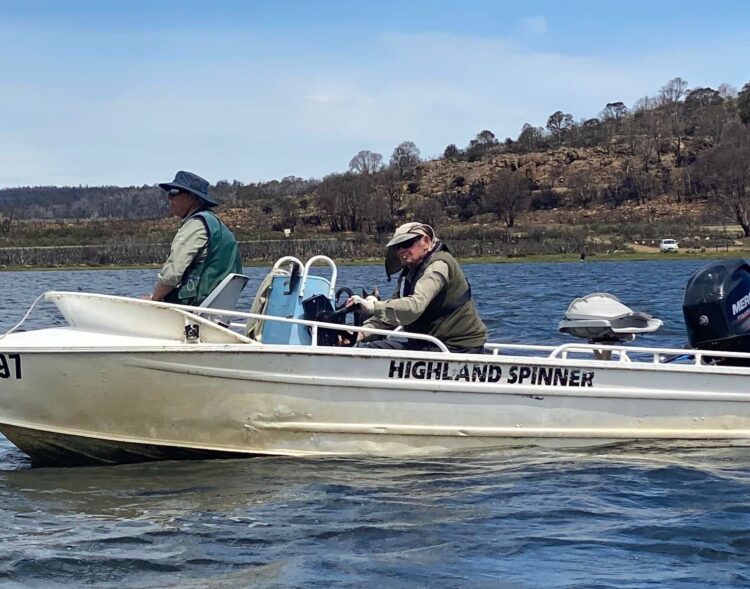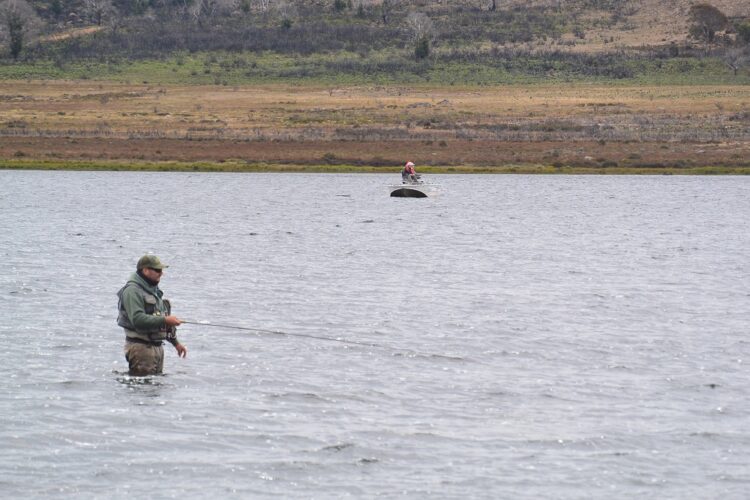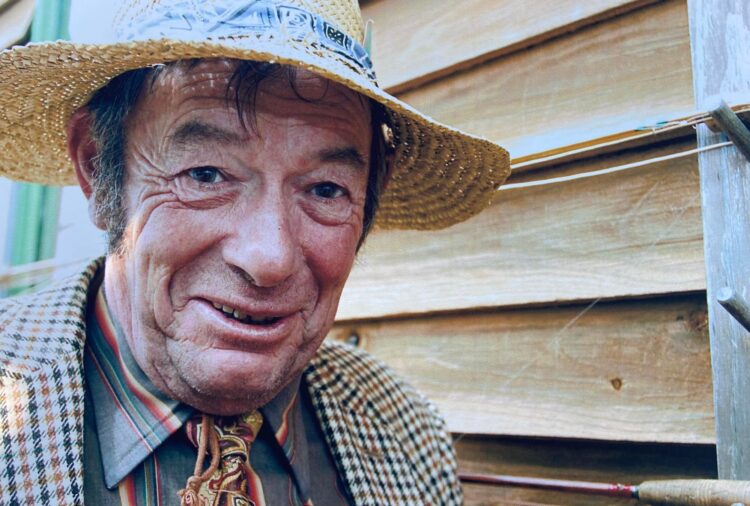
Jim salutes the late Bill Beck.
On New Year’s Day, word came through that well-known Tasmanian trout guide, Bill Beck, had died. He was in his early 80s, a good innings. No one could claim he didn’t enjoy his life around flyfishing. He lived it to the fullest and one night some years ago, as he lit another cigarette and lifted his glass of wine, he declared it’s better to have 75 good years than 85 miserable ones. We knew he wasn’t travelling well when earlier last year, he was diagnosed with a heart problem which would be extremely dangerous to operate on. He was told he might last a few more years or be dead the next day. I think he decided to take the risk.
Bill and Alan Felmingham were partners and two of the original trout guides in Tasmania. The late Noel Jetson had been the very first. Bill and Alan came next and in the early days, specialised in the magic fishing at the newly-flooded Lake Pedder.
When first filled, Lake Pedder experienced an explosion of mudeyes and galaxias as the waters rose and covered new ground. Huge brown trout, some in excess of 20 pounds, were caught during the height of the trout fishing boom that followed. Ten pounders were spoken of as quite common!
Later, Bill purchased the remnant business from the Felminghams and started his own guiding operation from his shack at Little Pine Lagoon and a caravan down at Pedder. His shack was affectionately called Hiccup Hall. For this writer, trout fishing with a fly rod is as much about the characters as it is about catching trout. Bill was without doubt one of the best-known and most charismatic characters in the highlands of Tasmania.
He was well known for his commercial fly-tying through winter, supplying many stores around Tasmania. His Cat Fly, made from the fur of feral cats, was possibly one of his most successful flies. Fished as a wet on grey windy days, it excelled both in black and olive colours. Today’s flyfishers describe wet fly fishing as ’pulling flies’. I don’t think Bill ever used that expression, but I’m certain his Cat Fly will live on and be ‘pulled’ for years to come, as will many of his other patterns.
Bill’s boat, a half-century old de Havilland Offshore called the Highland Spinner, was regularly seen all over the highlands and in later years, more often at Little Pine. Fishing in it would be Bill and his ‘victims’. He, sitting low in the middle, his clients at each end. Some described him as a trout fishing companion and not a guide. Bill didn’t care, he fished with his customers, pointing out the rising fish and offering them the first cast. A poor presentation would find Bill’s fly in the perfect position moments later. A few never came back. Most did though, because he was fun both to be with, and to fish with. In later years, his dog, a terrier called Punter, never stopped barking at anglers, other boats and fish. Life in the highlands with Bill was playing cards, drinking good wine, eating the finest Tasmanian beef at barbecues and of course flyfishing with a very knowledgeable angler.
Back at his shack, he was the true entertainer. Regaling fishing yarns of previous anglers from years at Lake Pedder, Lake Sorell, the mayfly fishing at the Lagoon of Islands, Arthurs Lake and many others. It didn’t matter if you were the Prime Minister, Governor-General, a business tycoon or just the bloke somewhere else with an ordinary job. In the company of Bill Beck, all were treated the same. Around the card table if you became a frequent attendee, you received an appalling and irreverent nickname. This writer was named ‘Marauding’, he Limping, then there was Wheezing, Smelly, Poppy-Growing, Entomologist, Dunny Brush and many, many more.
Card-playing nights often didn’t end until the first light of dawn and the few miles drive back to Miena were fraught with blurred vision. But no one was ever caught by the local constabulary, nor did they fall off the road or end up in the Ouse River – amazing when reflecting back! In later years, after Hiccup Hall burned down and a new shack was built on higher ground, perhaps his guests might’ve been a tad older and a little more responsible.
As an aside, I think Bill liked to sit low in the boat. I believe he thought the trout came much closer than to anglers sitting high on the seat poles so popular today. During mayfly season, he started the day with his Crystal Flash Nymph under a well-floating dry, which he called the Battleship – really just a well-hackled Red Tag. If and when the nymphs started to move and thereby persuaded a few trout to begin looking for them, Bill often pre-empted the dun hatch by switching to two dun patterns. He claimed the best of the dun hatch was at the very start of proceedings, and then at the end, during what he called the mopping up period after the main hatch subsided. In the middle of the hatch, he claimed the fish were too intent on the naturals. He often called trout rising in the peak of the hatch, “the bloody impossibles”!
So it was that the Highland Spinner was often out on the lagoon quite late, with Bill claiming some very good fishing was to be had after most of the boats had departed. He also commented that quite often, the largest fish of the day would be caught late.
If Little Pine calmed off at dusk on a warm evening, Bill would be back out in the afterglow, picking up a few midge feeders. The trout tracked the midges and there was some very exciting fishing, usually along the Road Shore.
Those who fished with Bill often let him make the rules depending on weather and wind conditions. His decision-making was well respected by mainland anglers who came back year after year, some even flying from California to be with him.
I may have written before of another long-departed angler giving me a lecture as a young teenager. He commented that, “One only lives about a thousand months son. Don’t waste the trip. Life’s a bit like a stone cast upon a pond, at the end the waves will eventually subside. Be a bloody big rock.” Well Bill Beck, you certainly were a larger rock than those skittle-balls that flew out of volcanoes many millions of years ago at the north end of Little Pine Lagoon. The waves from your life will live on in the annals of flyfishing in the Tasmanian highlands for many years to come. We, who knew you well, are warm in the knowledge of having had a great mate and enjoyed many hours in your company. We who remain will seize the flyfishing days left for us in your memory. Vale Bill Beck.
Postscript: Bill left us concerned about the lack of mayfly in the highlands of Tasmania in recent years. His family have started a fund to discover the cause. Go to this website for further information.














